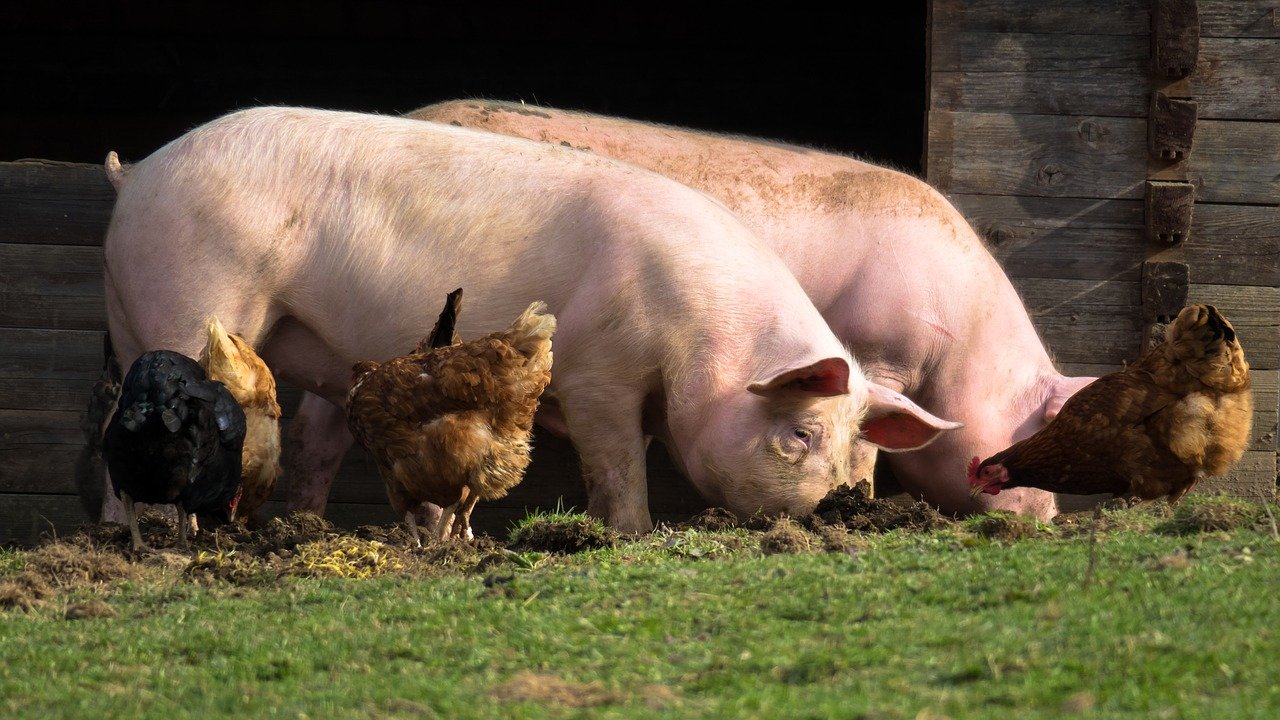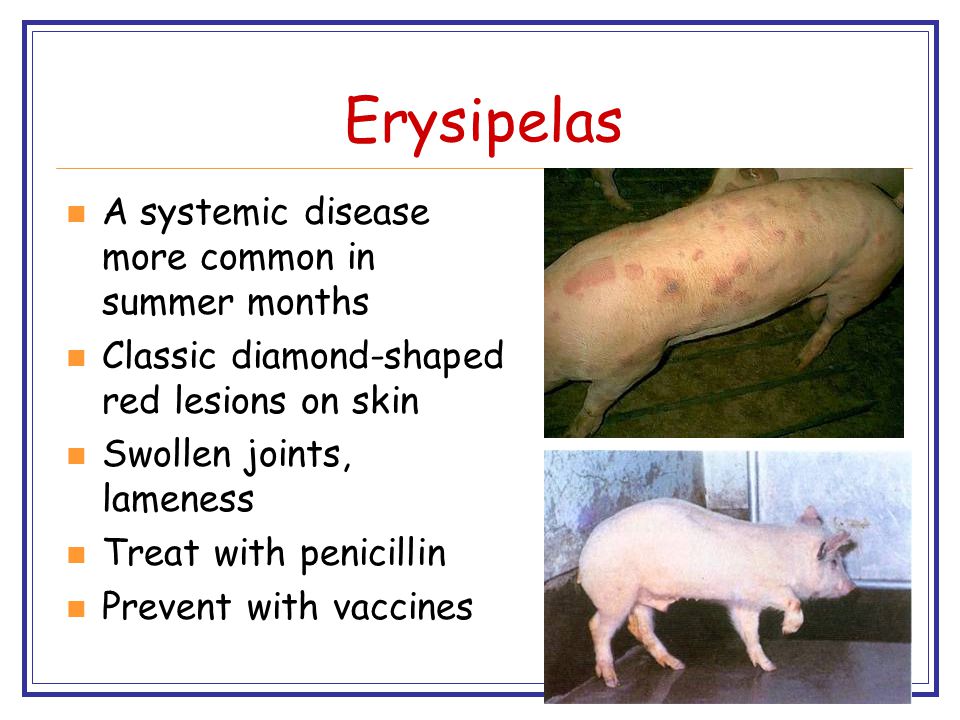Erysipelas or diamond disease is an infectious disease that affects pigs, mini pigs, mostly adult pigs.
Erysipelas is not the same as Cellulitis but shares similar symptoms.
However, Erysipelas is also referred to as St. Anthony’s fire.
The zoonotic disease is caused by the bacterium Erysipelothrix insidiosa, and can be transmitted to humans.
The bacterium is known to be very resistant to adverse conditions and could be found even amongst healthy pigs.
Causes of Erysipelas in Swine
Erysipelas can affect any pig farm since, in fact, a survey shows that there’s a high tendency for some pigs to carry the bacteria in their nostrils and they can spread it around the farm when they excrete or urinate.
Erysipelas is usually triggered by an abrupt change in the pigs’ diet or a sudden change in the weather, hence, the pathogenesis of swine Erysipelas is often complex.
Types of Erysipelas
The Erysipelas disease exists in the following forms.
- Septicaemic
- Cutaneous, and
- Chronic forms
These are the types of Erysipelas recognized.
The disease can be diagnosed by a veterinarian simply asking the farmer the symptoms observed and offer the proper antibiotics.
In the septicaemic form, the symptoms include a high fever, dull appearance, and the skin shows flat red patches.
There is difficulty in breathing as a result of the edema of the lungs.
The cutaneous form is usually not very serious and it runs a milder course.
The pig may just feel reluctant to eat and hide in the corners of the pen.
Parts of the body have purple or red, diamond-shaped, and clearly demarcated patches hence the disease is also called “diamond disease”.
In this form, the disease can go away on its own if you vaccinate your swine regularly as a preventive measure.
The chronic form of the disease is characterized by unthriftiness, chronic arthritis, swollen joints, and stiffness which are first hot and painful and the animal is lame.
Control of Erysipelas Disease in Pigs
Just like any other disease of pigs, early diagnosis is very important to prevent loss.
Once you notice that your pig is not active and show some of the above-mentioned symptoms, you are advised to consult a certified veterinarian immediately.
Regular vaccination can prevent Erysipelas from occurring.
Your pigs should be vaccinated before breeding and three weeks before farrowing.
Treatment of Erysipelas is by using antibiotics such as penicillin preparations like FORTECILLIN TARDOMYOCEL is also very effective against the septicaemic and cutaneous types of Erysipelas
The disease is transmissible to humans and adequate care should be taken in managing it.
Humans who get contracted should also visit their doctors for help and treatment.








